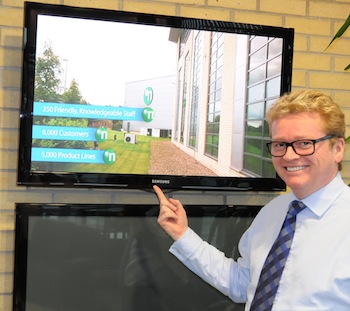In an update on trading for the financial year ended 31st March 2015 Phoenix IT Group expects profits to be 'comfortably in line with market expectations'.
The firm has reduced net debt from £56.1m to £49m, and executing strategic priorities set out by Chief Executive, Steve Vaughan early last summer have paid off, said the firm.
The Group expects to announce results for the year ended 31st March 2015 on 8th June.
Vaughan' strategy included managed service renewals such as Phoenix's long-term relationship with Costain Group for the provision of a wide range of infrastructure services, including Business Continuity and cloud services.
Growth in Business Continuity planning and consultancy has been aided by the release of an upgraded version of the Group's ShadowPlanner product.
A key objective for the second phase of the strategy is to sell additional services to existing customers, particularly those in Business Continuity.
The Group is seeing this cross-selling happening, particularly in the expansion of existing BC relationships into full-time hosting arrangements involving private or hybrid cloud provision.
The Group's proprietary public cloud offering, CloudSure UK, is performing well, said the Group, having secured its largest contract to date with a newly formed Joint Venture business involved in improving the National Infrastructure.
The Group now has a total of 12 live CloudSure UK customers, double the number at the end of the half year.
 Sixty videos designed to showcase new technology trends and products have been launched by Nimans.
Sixty videos designed to showcase new technology trends and products have been launched by Nimans.
 Unify's UK channel expansion campaign, launched last month, is gathering pace as exclusive distributor Nimans gears up for a brace of events in May designed to onboard new partners.
Unify's UK channel expansion campaign, launched last month, is gathering pace as exclusive distributor Nimans gears up for a brace of events in May designed to onboard new partners. NewVoiceMedia has named Mark Fellowes (pictured) as Senior Vice President of Sales Development and Operations.
NewVoiceMedia has named Mark Fellowes (pictured) as Senior Vice President of Sales Development and Operations.